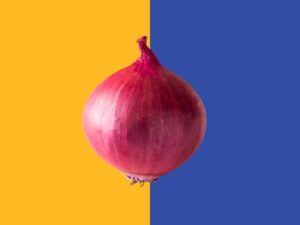Kangaroo meat has been a popular food source in Australia for many years. It is lean, high in protein, and has a unique flavor that sets it apart from other meats. However, the consumption of kangaroo meat is not without controversy. There are concerns about animal welfare, conservation, and cultural sensitivity that must be considered. In this article, we will explore the nutritional value of kangaroo meat, its impact on the environment, its cultural significance, and the various arguments for and against its consumption.
The Nutritional Value of Kangaroo Meat
Kangaroo meat is a lean protein source that is low in fat and high in nutrients. A 100-gram serving of kangaroo meat contains around 22 grams of protein, which is similar to beef but with less than half the fat. Kangaroo meat is also rich in iron and zinc, which are essential minerals for the human body. In terms of calories, kangaroo meat has a similar energy content to other meats.
Kangaroo meat is often praised for its nutritional value, particularly for those looking to maintain a healthy diet. The low-fat content makes it an attractive alternative to beef, pork, or lamb. However, some people find the taste of kangaroo meat to be too gamey or tough, which can make it less appealing as a food source.
Kangaroo Meat and the Environment
The consumption of kangaroo meat is often touted as a more environmentally sustainable alternative to other meats. Kangaroos are native to Australia and are considered a pest in some areas due to their large populations. Hunting kangaroos for their meat can help control their numbers and reduce the impact they have on the environment.
Compared to other meats, kangaroo meat has a lower carbon footprint and requires less water and land to produce. Kangaroos are also able to graze on native vegetation, which can help preserve fragile ecosystems and reduce the need for intensive farming practices.
However, there are concerns about the impact of hunting on kangaroo populations and the welfare of the animals themselves. The commercial hunting of kangaroos requires licenses and permits, and there are regulations in place to ensure that the animals are killed humanely. However, some animal welfare groups argue that these regulations are not always followed, and that hunting can cause unnecessary suffering to the animals.
What does kangaroo taste like?
Kangaroo meat is often described as being slightly gamey, which means it has a more pronounced flavor than some other meats. This is due to the fact that kangaroos are wild animals that eat a diet of grasses, leaves, and other vegetation, which can give their meat a distinct taste. Some people describe the taste of kangaroo meat as being similar to venison, but with a slightly sweeter and richer flavor.
The taste of kangaroo meat can also vary depending on how it is prepared and cooked. For example, grilling or roasting kangaroo meat can give it a slightly smoky flavor, while stir-frying it with spices and vegetables can add a range of different flavors and textures. It’s also worth noting that kangaroo meat is leaner than most other meats, which means it can be slightly tougher and drier if overcooked. To avoid this, it’s important to cook kangaroo meat carefully and follow proper food safety guidelines.
Kangaroo Meat and Indigenous Australians
Kangaroo meat has a long history of cultural significance in Indigenous Australian communities. Kangaroos have been a source of food, clothing, and shelter for Aboriginal people for thousands of years. The hunting and consumption of kangaroo meat are deeply ingrained in many Indigenous cultures, and the animals are often viewed as a spiritual symbol of the land.
For many Indigenous Australians, the commercialization of kangaroo meat is seen as a form of cultural appropriation. The use of kangaroo meat in the global market has led to concerns about the exploitation of Indigenous knowledge and resources. Some Indigenous groups have called for greater recognition and protection of their cultural heritage, including the right to control the use of kangaroo meat.
The Controversy Surrounding Kangaroo Meat
The consumption of kangaroo meat is not without controversy. Animal welfare groups have raised concerns about the methods used to hunt and kill kangaroos, particularly in commercial settings. There are also concerns about the impact of hunting on kangaroo populations, and the potential for the animals to suffer needlessly.
In addition to animal welfare concerns, there are also cultural sensitivities to consider. For many Indigenous Australians, the commercialization of kangaroo meat is seen as a form of cultural appropriation. The use of kangaroo meat in the global market has led to questions about the ethics of exploiting Indigenous knowledge and resources for profit. Some critics argue that the commercialization of kangaroo meat reinforces colonial power structures and perpetuates cultural erasure.
However, there are also arguments in favor of consuming kangaroo meat. Proponents of kangaroo meat point to its nutritional value, low environmental impact, and potential economic benefits. Kangaroo meat is also seen as a way to reduce the reliance on intensive farming practices and promote more sustainable food systems.
The Legality of Eating Kangaroo
The consumption of kangaroo meat is legal in Australia and other countries, but there are restrictions and regulations in place. In Australia, kangaroo meat can only be sold if it has been harvested under a government-issued permit. Commercial kangaroo hunting is tightly controlled, and hunters must adhere to strict regulations to ensure that the animals are killed humanely.
In other countries, such as the United States and Canada, the import and sale of kangaroo meat are banned due to concerns about animal welfare and conservation. However, in some European countries, such as Germany and Belgium, kangaroo meat is a popular food source and is sold in supermarkets and restaurants.
Preparing and Cooking Kangaroo Meat
Kangaroo meat is often compared to venison or beef in terms of its flavor and texture. It has a distinctive gamey taste and is leaner than most other meats. Kangaroo meat can be cooked in a variety of ways, including grilling, roasting, or stir-frying. However, it is important to note that kangaroo meat is often leaner than other meats, and overcooking can result in a tough and dry texture.
When cooking kangaroo meat, it is important to handle it with care to prevent contamination. Like all meats, kangaroo meat can harbor harmful bacteria, so it is essential to cook it thoroughly and follow proper food safety guidelines.
Kangaroo Meat in the Global Market
The export market for kangaroo meat is growing, particularly in Europe and Asia. Kangaroo meat is often marketed as a healthy and sustainable alternative to other meats, and its unique flavor is gaining popularity among food enthusiasts. However, the commercialization of kangaroo meat has led to concerns about animal welfare, cultural sensitivity, and conservation.
The economic benefits of the kangaroo meat industry are also a point of debate. Proponents argue that the industry provides jobs and income for rural communities, and can help support more sustainable land management practices. However, critics point to the potential negative impact on kangaroo populations and the ethical concerns surrounding the commercialization of a culturally significant food source.
Conclusion
In conclusion, the consumption of kangaroo meat is a complex and controversial issue. While kangaroo meat is a lean and nutrient-rich protein source, it is also a culturally significant food source with important conservation and animal welfare concerns. The debate over the consumption of kangaroo meat highlights the complex intersections between food, culture, and the environment. Ultimately, it is up to individuals to make informed choices about what they eat and the impact their choices have on the world around them.
References





